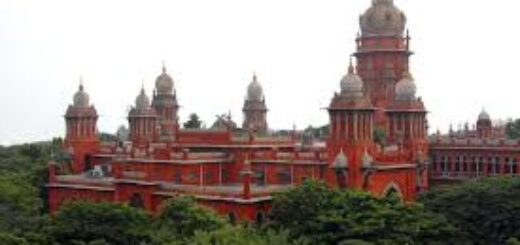When a citizen harmed by government action gets a legal ruling from the court, others in the same situation should also receive the same benefit. The Supreme Court has granted a permanent commission to a woman Lieutenant Colonel.

The Supreme Court has granted a permanent commission to a woman Lieutenant Colonel in the Army Dental Corps. The court emphasized that if a citizen has successfully challenged a government action and received a favorable ruling, others in similar situations should also benefit without needing to go to court. This appeal was against a decision from the Armed Forces Tribunal (AFT) Regional Bench in Lucknow, which denied the appellant similar reliefs that were granted by the AFT Principal Bench. The Division Bench, consisting of Justice B.R. Gavai and Justice K.V. Viswanathan, stated that the appellant was unfairly excluded while others in the same position were granted permanent commissions. They noted that eleven years have passed, and it would be unjust to apply the 2013 criteria to her, especially since she is now nearly 45 years old and has done nothing wrong.
The appellant joined the Army Dental Corps as a Short Service Commissioned Officer in 2008 when she was 27 years and nearly 11 months old. At that time, the rules allowed her three attempts to take the departmental exam for a permanent commission, along with an age extension. She was unable to pass in her first two attempts after two and four years of service. By March 9, 2013, she had completed five years of service and was eligible for her third attempt. However, changes to the regulations limited the age extension to 35 years and restricted eligibility to those with a Master’s in Dental Surgery from March 20, 2013, effectively denying her the chance to qualify.
The appellant argued that other officers in the same situation, who also missed the chance to take the clinical test and interview due to the amendment, quickly filed applications with the AFT. These officers received permanent commissions because they were eligible for a third chance before the amendment but could not take it. The appellant was not considered because she was not part of the Original Application due to her pregnancy at that time. The Bench stated that the phrase “Only to the Petitioners” in the order rejecting the representation was clearly wrong. While the AFT Principal Bench provided relief to the petitioners, it did not stop the department from considering others in similar situations.
Citing the case of Amrit Lal Berry vs. Collector of Central Excise, New Delhi and Others, the Bench noted that it is a well-established legal principle that when a citizen challenges a government action and wins, others in similar situations should also benefit without needing to go to court. The Bench pointed out that the respondents failed to provide a valid reason for not treating the applicants who benefited from the AFT as being in the same situation as the appellant. The Principal Bench had already determined that those applicants were denied a third chance and ordered their cases to be considered for permanent absorption with a one-time age relaxation under the old policy. The Bench concluded that the respondent authorities should have automatically extended the benefits of the AFT’s judgment to the appellant.
The Bench noted that the appellant has been pursuing justice since 2014. The delay from 2017 to 2021 occurred after she withdrew her earlier applications. This was mainly because she was stationed in Arunachal Pradesh from August 2017 to 2019, during which she submitted a second request. Additionally, the period from March 2020 to January 2021 was affected by the Covid-19 pandemic. The Bench stated that there is clear evidence of discrimination and decided not to dismiss the appellant’s case due to the delay. Recognizing her distinguished service, as she is currently a Lieutenant Colonel in the Army Dental Corps in Agra, the Court used its authority under Article 142 of the Constitution to grant her a Permanent Commission.
The Bench allowed the appeal and ordered that the appellant’s case be reviewed for the Permanent Commission. She should receive the same benefits as others in similar situations who were granted benefits following the judgment on January 22, 2014, in O.A. No. 111 of 2013 from the Principal Bench of the AFT. This includes all related benefits such as seniority, promotions, and monetary compensation, including any arrears owed to her.
Cause Title: Lt. Col. Suprita Chandel Appellant v. Union of India and Ors. [Neutral Citation: 2024 INSC 942]









